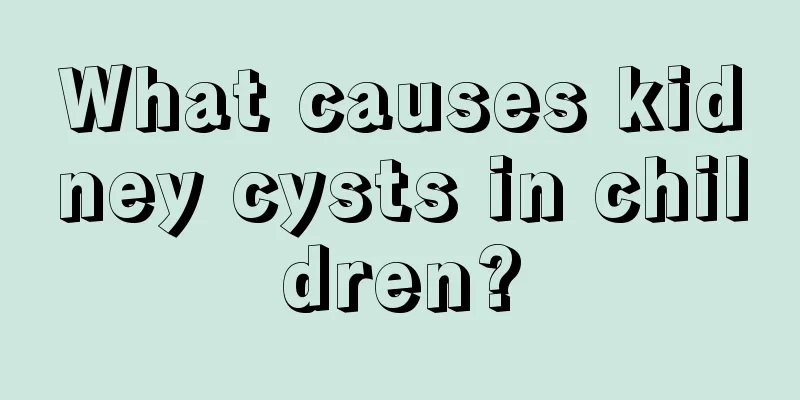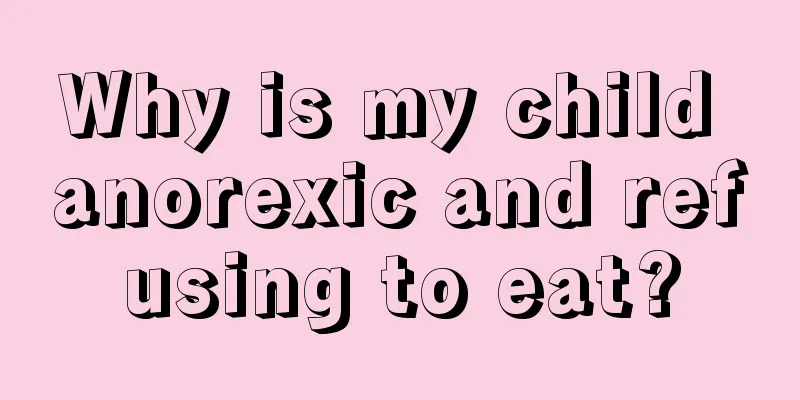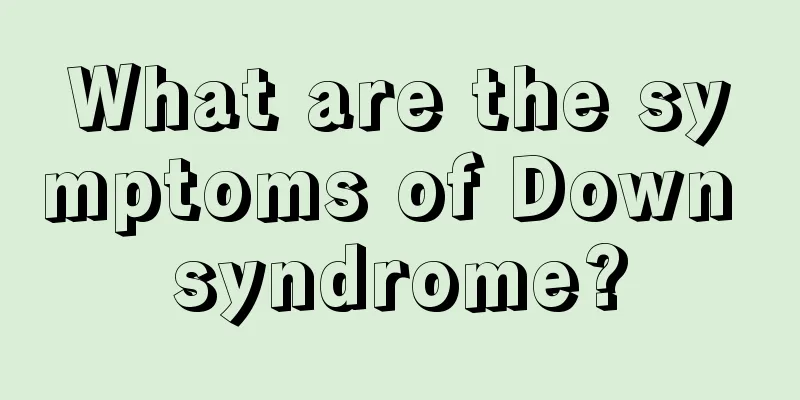What is the cause of baby's low-grade fever and vomiting?

|
The most headache-inducing thing for parents is when there are problems with the baby's health. Parents are always at a loss, especially some inexperienced parents who don't know what to do. Among them, low-grade fever and vomiting in babies is a relatively common phenomenon. When such a phenomenon occurs, you cannot blindly give the baby medicine, because there are many reasons for such a phenomenon. You must prescribe the right medicine to get better treatment. Let's understand what is going on with low-grade fever and vomiting in babies? What is the cause of baby's low-grade fever and vomiting? 1. Improper feeding or eating: Overfeeding during the neonatal period, improper milk formula, swallowing large amounts of air while feeding; infants and young children eating large amounts at one time or food that is difficult to digest. 2. Abnormal digestive function: Systemic infectious diseases. If you suffer from upper respiratory tract infection, bronchitis, pneumonia, sepsis and other diseases, you will often experience vomiting along with high fever, nausea, loss of appetite, etc. 3. Digestive tract infectious diseases: gastritis, enteritis, dysentery, appendicitis and other diseases can cause reflex vomiting due to local irritation, which is often accompanied by other digestive system symptoms such as nausea, abdominal pain and diarrhea. 4. Neurological diseases: Central nervous system diseases such as encephalitis, meningitis, intracranial hemorrhage or tumors, and craniocerebral trauma can also cause vomiting, which is characterized by no nausea before vomiting and projectile vomiting, but is often accompanied by other symptoms of the nervous system, such as headache, mental depression, drowsiness, and even convulsions and coma. 5. Mental factors: Some children may vomit due to excessive mental stress or anxiety caused by certain reasons. Recurrent vomiting is sometimes related to mental factors. 6. Poisoning: including various poisonings, such as food poisoning, poisonous animals, plants, drugs, pesticides, etc., almost all of which have vomiting symptoms, but different poisonings have their own clinical characteristics for identification. 7. Others: Vestibular dysfunction of the inner ear or Meniere's disease (hydromatous accumulation in the inner ear membrane and labyrinth) causes severe vomiting, but is often accompanied by vertigo and spinning vision; congenital gastrointestinal malformations in children, such as gastric torsion, hypertrophic pyloric obstruction, etc. In addition, vomiting is also severe in children with intestinal ascariasis who have intestinal obstruction or biliary ascariasis. The above is an introduction to what causes low-grade fever and vomiting in babies. After understanding it, we know that there are many reasons for this phenomenon. Only by prescribing the right medicine can we effectively and timely relieve the symptoms of the baby. In addition, if parents cannot grasp the cause of the disease, they must take the baby to the hospital for treatment in time. In addition, during the illness, they must pay attention to the baby's light diet. |
<<: What are the development indicators of a 30-month-old baby?
>>: Why does a six-month-old baby sweat while sleeping?
Recommend
What should I do if my child has rhinitis?
After a child has rhinitis, parents should pay at...
The order in which children's teeth erupt and what symptoms occur during teeth eruption
When a child is 6 months old, he or she has basic...
What should I do if my child has flat blood?
Many children will suffer from anemia when they a...
Symptoms of anemia in 7 month old baby
If a seven-month-old baby develops anemia, the ha...
What subject is not allowed for children to pass in pronunciation?
The child is too young, and the various organs of...
How to treat baby seborrheic dermatitis?
Currently, most families have only one baby, and ...
The child has a fever and pain around the belly button
Children's bodies are very fragile, so they a...
How to treat baby's prickly heat
Babies often get prickly heat in the summer, whic...
What to do if a child has a fever or diarrhea
Many babies will suffer from diarrhea when they h...
What are the key points of postpartum baby care
A few days after the baby is born, it is time to ...
The child fell on the back of his head
Sometimes, although parents take good care of the...
What should I do if my child’s teeth are crooked?
Nowadays, people pay more and more attention to d...
How to treat sinusitis in children
Rhinitis is somewhat hereditary. If a child has a...
What is the height and weight standard for a four-year-old girl?
The physical development of children is something...
What should I do if my baby only eats breast milk and not formula?
As babies grow older, they will use formula to re...









